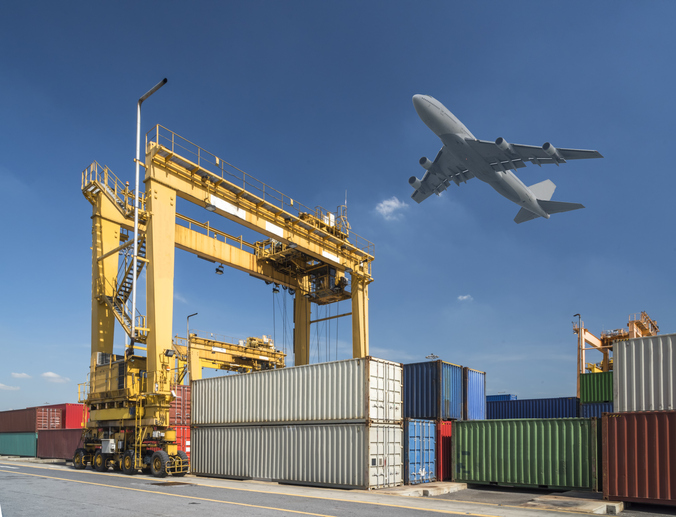
Freight rates can be a make-or-break factor for businesses that rely on shipping to transport their goods. Shipping rates can change based on a variety of factors that can be difficult to predict or control, leading to unpredictable costs that can hurt the bottom line. Understanding the factors that can affect freight rates is essential to managing shipping costs effectively. Let’s take a look at 10 factors that can impact freight rates and discuss three recent world events that drastically changed shipping prices.
Shipping costs are an integral part of the supply chain for businesses of all sizes. Understanding the factors that influence shipping rates can help businesses make better decisions when it comes to shipping their products. Freight rates are determined by a complex set of factors that can be difficult to predict or control. By understanding these factors, businesses can better manage their shipping costs and minimize their impact on the bottom line.
Fuel costs are one of the most significant factors that impact freight rates. The cost of fuel can fluctuate based on a variety of factors, including geopolitical events, supply and demand, and weather conditions. Fuel prices can have a significant impact on shipping costs, as carriers may need to adjust their rates to cover the cost of fuel.
Seasonality can also impact shipping rates. For example, during the peak shipping season, carriers may charge higher rates due to increased demand. Conversely, during slower periods, carriers may offer lower rates to attract business. Understanding seasonal fluctuations in shipping rates can help businesses plan their shipping needs accordingly.

Capacity is another important factor that can impact freight rates. When demand for shipping services exceeds available capacity, carriers may increase their rates to maximize profits. Alternatively, when there is excess capacity in the market, carriers may lower their rates to attract business.
Market demand is another significant factor that can impact freight rates. When demand for certain types of goods increases, carriers may charge higher rates to transport those goods. Alternatively, when demand for certain goods decreases, carriers may offer lower rates to attract business.
Shipping distance can also impact freight rates. The further goods need to travel, the higher the shipping costs will be. This is due to increased fuel costs and other expenses associated with longer shipping distances.
The mode of transportation used can also impact freight rates. Different modes of transportation have different costs associated with them, and carriers may charge different rates depending on the mode of transportation used.
The carrier chosen can also impact freight rates. Different carriers may have different rates for the same shipment, depending on a variety of factors such as capacity, market demand, and the mode of transportation used.
Special requirements can also impact freight rates. For example, if a shipment requires special handling, such as refrigeration, carriers may charge higher rates to cover the additional costs associated with those requirements. Read our previous post about transporting dangerous goods.
Customs and tariffs can also impact freight rates. Different countries have different customs and tariff regulations, which can impact the cost of shipping goods internationally. Understanding these regulations is essential to managing international shipping costs effectively.
COVID-19 Pandemic - The COVID-19 pandemic had a significant impact on shipping rates, particularly in the early stages of the pandemic when supply chains were disrupted.
Suez Canal Blockage - In March 2021, a container ship became lodged in the Suez Canal, blocking one of the world's busiest shipping lanes. This blockage led to significant delays in global shipping, and carriers were forced to reroute ships around the Cape of Good Hope, resulting in increased shipping costs.
U.S.-China Trade War - The U.S.-China trade war, which began in 2018, led to increased tariffs on goods shipped between the two countries. These tariffs resulted in higher shipping costs for businesses, as carriers passed on the cost of the tariffs to their customers.
Freight rates can be a significant cost for businesses that rely on shipping to transport their goods. Understanding the factors that can impact shipping rates is essential to managing shipping costs effectively. Fuel costs, seasonality, capacity, market demand, shipping distance, mode of transportation, carrier choice, special requirements, and customs and tariffs are all factors that can impact freight rates. In addition, world events such as the COVID-19 pandemic, Suez Canal blockage, and U.S.-China trade war can have a significant impact on shipping rates.
Businesses can manage their shipping costs by understanding the factors that impact shipping rates and planning their shipping needs accordingly. This may include negotiating with carriers, choosing the most cost-effective mode of transportation, and avoiding peak shipping seasons.
Fuel costs are a significant expense for carriers, and fluctuations in fuel prices can significantly impact their profitability. As a result, carriers may need to adjust their rates to cover the cost of fuel.
Businesses can mitigate the impact of world events on shipping rates by staying informed about global events that may impact the supply chain and planning their shipping needs accordingly. This may include using alternative routes or modes of transportation to avoid disruptions.
When choosing a freight forwarder, businesses should consider factors such as capacity, market demand, mode of transportation, and special requirements. It may be helpful to compare rates and services offered by different carriers to find the best fit for their needs.
Businesses can stay up-to-date on changes in shipping rates by monitoring market trends, staying informed about world events that may impact the supply chain, and maintaining open communication with their carriers.
Looking for a reliable shipping service with competitive rates? Look no further than PGA Shipping Services. Our experienced team will work with you to find the best shipping solution for your business needs, all while offering unbeatable rates. Contact us today to learn more and start shipping smarter with PGA Shipping Services.